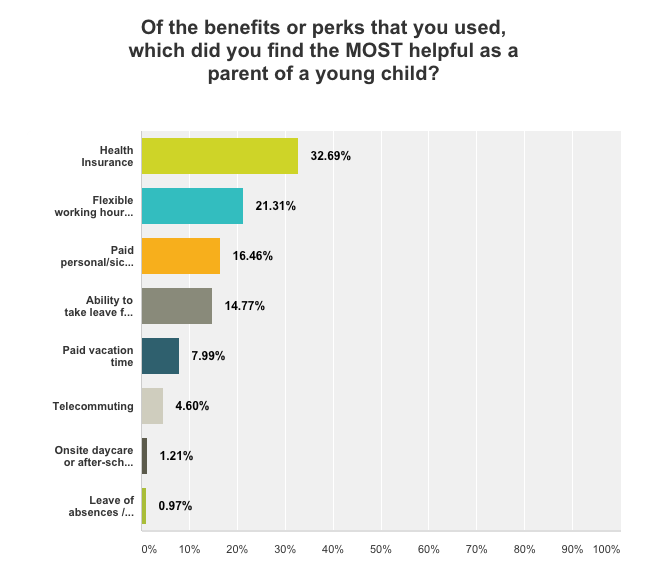Want to attract more working moms to your startup? Offer the right benefits.
By Betsy Mikel (Women 2.0, Editor)
 When it comes to Silicon Valley perks, first there’s the make-life-easier stuff: Dry cleaning, free food, valet parking and the like.
When it comes to Silicon Valley perks, first there’s the make-life-easier stuff: Dry cleaning, free food, valet parking and the like.
Then there’s a whole other quirky, just-for-fun category of perks. Post work happy hours. All-night hackathons. Laser tag outings. These activities foster a tight-knit culture and attract new employees — but not always employees who have children. While these are perks for some, parents can’t always participate, as a recent New York Times piece pointed out.
But companies have started to realize there’s more to attracting key employees than non-family friendly fun. Smart companies care about diversity, and that means offering benefits that attract a wide range of employees. Including parents.
Plus, working parents are not just good for a well-rounded staff. Moms who works are actually good for their children. “Daughters of working mothers earn 23 percent more than daughters of stay-at-home moms in the U.S., according to research by McGinn and others,” CNN reported.
Which Perks Do Working Moms Value Most?
SurveyMonkey, one of the companies that presented at our recent Think Differently culture event, wondered exactly this question in a recent post on their blog:
“Many businesses and organizations spend a lot of time, money and creative brain power on developing extra benefits in the workplace aimed at retaining talent as well as recruitment.
Family-friendly benefits — maternity/paternity leave, flexible working schedules, onsite daycare — are additional workplace perks that are becoming more commonplace. We wanted to know which of these family-focused benefits are considered to be of the most value to working parents, specifically mothers.”
They turned to SurveyMonkey Audience, a powerful online tool that allows people who run surveys to target their audience based on criteria like age, parental status, location and career.
SurveyMonkey asked 500+ moms to share what benefits their workplaces provided, which perks they’ve actually used, and which perks they found the most helpful. Here’s what they found.
The top five benefits included:
- Affordable health insurance with dental coverage
- Flexible work schedules
- Paid sick leave
- Ability to leave when a child was sick
- Paid vacation time
“However, only 77 percent of organizations these parents work for offer full-time offer health insurance, only 40 percent offer flexible work schedules and 67 percent allow parents to take leave for a sick child,” SurveyMonkey found.
Which Benefits Do Working Moms Want?
SurveyMonkey also asked these parents which perks they would like to see added to their companies. The most overwhelming response: daycare and childcare benefits.
“Unfortunately, less than 5 percent of the responding moms work at organizations that provide daycare or childcare subsidies,” SurveyMonkey found. “This highlights a large gap between the benefits that parents want organizations to provide, and the benefits that are actually provided.”
Do All Moms Want the Same Perks?
In their results, SurveyMonkey found that the age of the children affected which perks they found most beneficial. Moms with kids under the age of 11 highly valued flexible work schedules and the ability to take leave when their children got sick.
The number of children in the family also affected the results. A flexible work schedule was important to 18 percent of working moms with one children. But that number climbed for larger families. 24 percent of parents with two or more children valued this benefit.
Across the board, most moms did not value the ability to provide leave of absence or sabbaticals as a benefit.
Based on these results, SurveyMonkey advises employers to steer clear of a laundry list of perks and instead focus on quality, meaningful perks that can actually help working parents.
“Instead, focus on the benefits that parents find the most valuable: affordable health insurance, flexible work schedules and the ability to take leave to tend to a sick child,” SurveyMonkey advised.
About the author: Betsy Mikel is the managing editor of Women 2.0 and runs the content consultancy Aveck. She has a degree in journalism from the University of Missouri and a lifelong obsession with French language and culture. When she’s not biking all over every city she visits to find its best taqueria, you can find Betsy on Twitter at @betsym.

